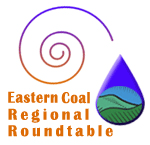By CHARLES DUHIGG
New York Times
[exerpted]
For decades, farmers, lawn care workers and professional green thumbs have relied on the popular weed killer atrazine to protect their crops, golf courses and manicured lawns.
But atrazine often washes into water supplies and has become among the most common contaminants in American reservoirs and other sources of drinking water.
Now, new research suggests that atrazine may be dangerous at lower concentrations than previously thought. Recent studies suggest that, even at concentrations meeting current federal standards, the chemical may be associated with birth defects, low birth weights and menstrual problems.
Laboratory experiments suggest that when animals are exposed to brief doses of atrazine before birth, they may become more vulnerable to cancer later.
An investigation by The New York Times has found that in some towns, atrazine concentrations in drinking water have spiked, sometimes for longer than a month. But the reports produced by local water systems for residents often fail to reflect those higher concentrations. [...]
Forty percent of the nation’s community water systems violated the Safe Drinking Water Act at least once last year, according to a Times analysis of E.P.A. data, and dozens of chemicals have been detected at unsafe levels in drinking water. [...]
In interviews, some E.P.A. officials conceded that they were frustrated by the limitations they face in scrutinizing chemicals like atrazine. An estimated 33 million Americans have been exposed to atrazine through their taps, according to data from water systems nationwide. [...]
Some high-ranking E.P.A. officials say there are concerns over atrazine, and that it, among other chemicals, is likely to be closely re-examined by the new E.P.A. administrator, Lisa P. Jackson.
“Atrazine is obviously very controversial and in widespread use, and it’s one of a number of substances that we’ll be taking a hard look at,” said Stephen A. Owens, who was recently confirmed as the E.P.A.’s assistant administrator for prevention, pesticides and toxic substances.
Read the entire story here.
Subscribe to:
Post Comments (Atom)

No comments:
Post a Comment